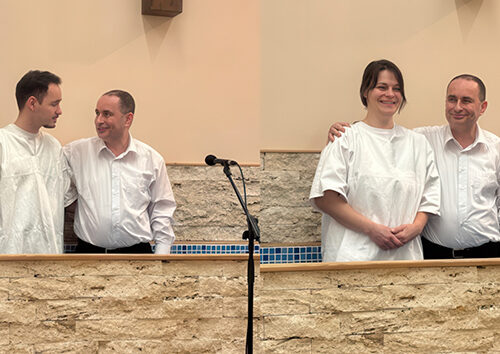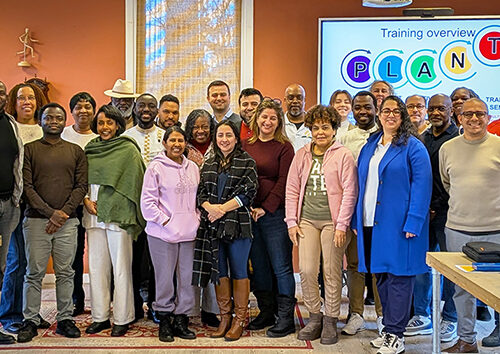18 July 2019 | Tallin, Estonia [Averonika Beekmann]
Estonia is a small state by the Baltic Sea in north-eastern Europe with the population of 1.3 million. Right on the border between east and west it is a country squeezed between two mindsets – resulting in it being desired as well as possessed by different rules over centuries. Thus, while the Estonian nation is ancient, the republic is remarkably young at a mere 101 years.
 Inhabitants were first called Estonians in 1857; until then, they had been referred to as ‘slaves’ or ‘the country people’. To celebrate being recognised as a nation and having a name, Estonians turned to singing. In 1869, some enlightened men organised a huge party to mark the 50th anniversary of abolishing slavery in the region – the first Song Celebration. Most of the songs performed were religious with two songs being written by Estonian composers, others translated from German. These two Estonian songs are still in the repertoire today, sung with tears running down the cheeks.
Inhabitants were first called Estonians in 1857; until then, they had been referred to as ‘slaves’ or ‘the country people’. To celebrate being recognised as a nation and having a name, Estonians turned to singing. In 1869, some enlightened men organised a huge party to mark the 50th anniversary of abolishing slavery in the region – the first Song Celebration. Most of the songs performed were religious with two songs being written by Estonian composers, others translated from German. These two Estonian songs are still in the repertoire today, sung with tears running down the cheeks.
It is now 150 years since the first Estonian Song Celebration and 200 since the abolishment of slavery and the birth of national consciousness in the area. Estonia commemorated these anniversaries just as they did 150 years ago – with a great celebration, an anniversary song celebration. Such celebrations have dwelt in the souls of Estonians for generations. Every five years, on the first weekend of July, tens of thousands of performers gather at the Song Festival Grounds. This year that included 45,000 performers, 60,000 people singing along in the audience, with 500,000 more in front of their TV sets.
The second time Estonia sang such songs of freedom was at the end of the 1980s, when the Soviet Union was about to fall. That period is known as the Singing Revolution in Estonia, or the Second National Awakening. Today, song celebrations aim to invite the Estonian people to think back about the two eras of awakening and to cherish themselves as a free nation.
 Hundreds of choirs participate in the celebration and this year, the Adventist church choir “Ootus” (English translation: hope, anticipation, expectation) joined the others. This was the first time one of our church choirs took part in a celebration as large as this. A member of the choir, Marju Kiplok, said that it was extremely wonderful that our nation held something as sacred as this sacred, but also noted: “For me, the sacred is related to the eternal. The greatest song celebration is yet to come.”
Hundreds of choirs participate in the celebration and this year, the Adventist church choir “Ootus” (English translation: hope, anticipation, expectation) joined the others. This was the first time one of our church choirs took part in a celebration as large as this. A member of the choir, Marju Kiplok, said that it was extremely wonderful that our nation held something as sacred as this sacred, but also noted: “For me, the sacred is related to the eternal. The greatest song celebration is yet to come.”
Singer Kerstin Ploompuu added: “When I sing the songs celebrating my fatherland, I also consider another Fatherland, to which I would like to pledge even greater allegiance.”
The conductor of the choir, Helerin Lehtla, thanked the choir for the hard work it took to make it through to the celebration. “I was a little hesitant at first, since I knew what the preparation process is like and what commitment it would require from the choir and myself. Today, I can honestly say that the choir remained very diligent, united and dedicated throughout the season.”
 The Song Celebration this year was special for the Adventist church for one more reason: a member of our church, Ülle Tuisk, stepped onto the conductor’s podium to conduct the men’s choirs. Having the chance to do that at a celebration so significant for Estonians is definitely one of the highlights for a conductor. “Thinking back on it now, I felt good up on the podium. The feeling of starting with the upbeat and hearing that they have indeed started singing and are proceeding the way you desire is very, very powerful. I am very happy to have taken part in the celebration once as a conductor. I hope to have inspired some and I have definitely been inspired myself,” commented Tuisk.
The Song Celebration this year was special for the Adventist church for one more reason: a member of our church, Ülle Tuisk, stepped onto the conductor’s podium to conduct the men’s choirs. Having the chance to do that at a celebration so significant for Estonians is definitely one of the highlights for a conductor. “Thinking back on it now, I felt good up on the podium. The feeling of starting with the upbeat and hearing that they have indeed started singing and are proceeding the way you desire is very, very powerful. I am very happy to have taken part in the celebration once as a conductor. I hope to have inspired some and I have definitely been inspired myself,” commented Tuisk.
Singing also holds a special place among the people of God: we sing of the way home and our homeland, of Jesus’ return and heaven. We sing of the abolishment of slavery to sin and of freedom in Jesus. As Adventists, we have been singing for the same time as Estonians, who expressed their joy of liberation with their first Song Celebration; the Adventist movement was also born out of a great awakening in the second half of the 19th century.
When an Estonian sings one of the songs that was featured in the programme of the first Song Celebration, “My fatherland is My love”, a Christian Estonian also thinks of their heavenly home, their Father’s home, and can thus partake in double the hope and joy at the celebration.
Translated into English by Kärt Lazić
tedNEWS Staff: Victor Hulbert, editor; Deana Stojković, associate editor
119 St Peter’s Street, St Albans, Herts, AL1 3EY, England
E-mail: [email protected]
Website: www.ted.adventist.org
tedNEWS is an information bulletin issued by the communication department of the Seventh-day Adventist Church in the Trans-European Division. Readers are free to republish or share this article with appropriate credit including an active hyperlink to the original article.



